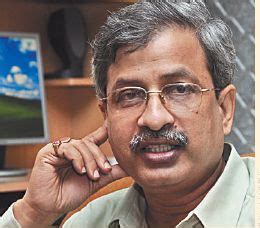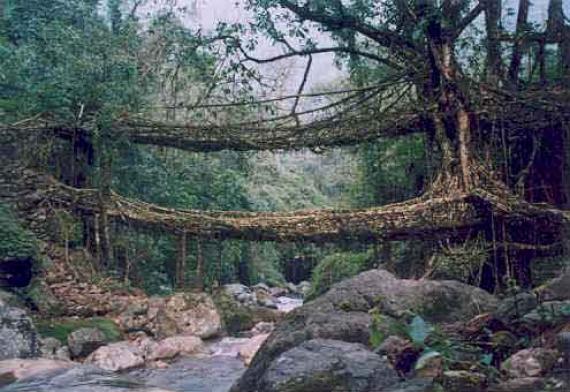This talk dwells upon different research paradigms such as Hypothesis-oriented, Assessment-oriented, Action-oriented, Systems-oriented, Social adaptive (similar to V2V) frameworks. The motivation behind this talk is to discuss research that goes beyond the conventionally defined domains of science; the relevance of non-expert based knowledge to offer solutions to complex social and environmental problems, and the research that can bring significant impacts on people’s behavior by small endeavors.

The implications of the novel and non-traditional research framework for vulnerability to viability transitions will be discussed as a way forward for building resilient communities in a variety of resource contexts. The emphasis is laid primarily on exploratory research in resource constrained contexts with a focus on what happens in 450,000+ villages in India, where people survive and even thrive in adverse circumstances and where collective identity and common goals are far more important than individualism.
Dr. Mandal shows how institutional memory, mutual valuing and shared experience are key ingredients of frugal innovation and that people in the villages are adapted to transformation as a way to eke out a living. Among the examples to illustrate the point he referred to the use of roots of live rubber trees in terrains, where it would be too expensive and complicated to build conventional bridges of steel or concrete. These bridges are very sturdy and functional for the needs of the villagers.

He argues that investigating their mode of garnering collective intelligence, creation of solutions through shared inputs and changed behaviours requires a flexible non-conventional research framework that can not be pre-planned in detail. He illustrates with a number of other examples how villagers develop inexpensive solutions with locally available resources that do not necessarily seek perfection, but must be good enough for their purpose. The solutions they develop are responses to everyday challenges. They deliver more value at lower cost and level inequality. By creating new relationships and enhance the local society’s capacity to act they bring greater autonomy and ultimately more happy lives.
While solutions are site- and community-adapted, many may still scale and enable interesting solutions elswhere as well. This is where exploratory research has a great role to play.
Check out the full lecture and Q&A session here.
Académie de la pêche artisanale
- SSF and Environmentalists rethink fisheries together
- Rendre la pêche équitable
- La surpêche étrangère alimente la crise migratoire meurtrière du Sénégal vers l’Europe
- Mundus maris at MARE 2025
- Small-scale fishers at the center of ocean governance and food security
- Rendre la pêche équitable dans l’UE : 25 mars 2025
- Relations entre l’Homme et la biodiversité au travers de différentes échelles
- Célébration de la Journée mondiale de la pêche au Nigeria, 21 novembre 2024
- Mundus maris a participé à la Journée mondiale de la pêche 2024 organisée par la Canoe and Fishing Gear Association of Ghana (CaFGOAG).
- Contribution de Mundus maris à la consultation publique de l’UNOC3
- Sommet sur la pêche artisanale à Rome, 5-7 juillet 2024
- Symposium régional sur la pêche artisanale européenne, Larnaca, Chypre, 1-3 juillet 2024
- Réunion d’urgence sur la pêche dans la Baltique, Bruxelles, 26 juin 2024
- Ambivalent role of Market and Technology in the Transitions from Vulnerability to Viability: Nexus in Senegal SSF
- Shell fisheries as stewardship for mangroves
- Edition Africaine du 4ème Congrès Mondial de la Pêche Artisanale (4WSFC) à Cape Town, du 21 au 23 novembre 2022
- Journée mondiale de la pêche, 21 novembre 2023
- Séminaire en ligne : Défis et opportunités de la pêche au Nigeria
- Présentation de l’application FishBase au Symposium de Tervuren
- Conférence MARE sur la Peur bleue – Mundus maris réfléchit
- The Transition From Vulnerability to Viability Through Illuminating Hidden Harvests, 26 May 2023
- Les sessions de l’EGU se concentrent sur la géoéthique et l’apprentissage collaboratif
- Solidarité avec les artisans pêcheurs du Sénégal et de la Mauritanie
- The legal instruments for the development of sustainable small-scale fisheries governance in Nigeria, 31 March 2023
- Tools for Gender Analysis: Understanding Vulnerability and Empowerment, 17 February 2023
- Community resilience: A framework for non-traditional field research, 27 January 2023
- Sustainability at scale – V2V November webinar
- 4WSFC Europe à Malte, 12-14 septembre 2022
- Mundus maris prend part au Sommet de Rome consacré à la pêche artisanale
- Women fish traders in Yoff and Hann, Senegal, victims or shapers of their destiny?
- L’Académie continue son travail à Yoff
- Illuminating the Hidden Harvest – a snapshot
- Virtual launch event FAO: International Year of Artisanal Fisheries and Aquaculture
- The Small-Scale Fisheries Academy as a source of operational support to PA Guidelines
- World Fisheries Congress, Adelaide, 20-24 September
- Mundus maris supports the fight of Paolo, the fisher, in Tuscany, Italy
- Rattrapage – Academy PAD à Yoff, 27 févr. 2021
- Renforcement des capacités des acteurs de la pêche artisanale
- Essai des méthodes de formation lors de la phase pilote de l’Académie PAD au Sénégal
- Une première – Inauguration d’une Académie de la pêche artisanale au Sénégal
